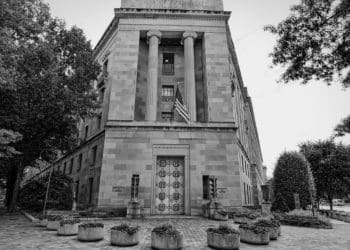In affirming the viability of an implied false certification theory of liability under the False Claims Act (FCA), the Supreme Court’s recent decision in Universal Health Services v United States ex rel. Escobar, 136 S. Ct. 1989 (2016) provided much-needed clarity around the type of conduct that is actionable under the FCA in the first place. The High Court’s analysis established outer limits for when an alleged factual misrepresentation or omission creates the necessary conditions for imposing FCA liability. As discussed in more detail below, the Supreme Court’s analysis eschewed artificial distinctions previously adopted in some lower courts between “conditions of payment” and “conditions of participation” as a means of limiting FCA claims, and instead leaned heavily on a robust conception of materiality in order to constrain what could otherwise have been an open-ended recovery theory.
Background of Universal Health Services v. United States ex rel. Escobar
The Escobar case arose out of the care rendered to a female teenage Medicaid beneficiary at Arbour Counseling Services (Arbour), a mental health center in Massachusetts owned and operated by Universal Health Services, Inc. The Relators were the mother and stepfather of the teenager, who died of a seizure in 2009 at age 17 while still under Arbour’s care. The qui tam complaint alleged that the teenager had been treated by assorted unqualified and unsupervised staff at Arbour, in violation of State regulations. The complaint further alleged that compliance with such regulations was a condition of payment by the Massachusetts Medicaid program (known as MassHealth) and that Arbour’s claim submissions to MassHealth thus were false under the Federal and State False Claims Acts.
The District Court dismissed the complaint, concluding that all but one of the regulations constituted only conditions of participation in MassHealth and not conditions of payment, and that only noncompliance with the latter could establish the falsity of a claim. The court further ruled that Relators had not alleged fraud with sufficient particularity under Rule 9(b).
The First Circuit Court of Appeals reversed. The First Circuit disregarded distinctions between factually and legally false claims or express and implied certification theories, and instead framed the issue as being “simply whether the defendant, in submitting a claim for reimbursement, knowingly misrepresented compliance with a material precondition of payment.” United States ex rel. Escobar v. Universal Health Services, 780 F.3d 504, 512 (1st Cir. 2015). The court proceeded to answer that question in the affirmative, after first noting that “[p]reconditions of payment, which may be found in sources such as statutes, regulations and contracts, need not be ‘expressly designated.'” Id. (citation omitted). The First Circuit held that the regulatory provisions at issue “clearly impose[d] conditions of payment,” that those provisions require “appropriate supervision” and that “the core of Relators’ complaint” was that “supervision at Arbour was either grossly inadequate or entirely lacking.” Id. at 513-14. The court further found that the Relators sufficiently pleaded: (1) that Arbour’s claims were false since those claims “misrepresented compliance with a condition of payment, i.e., proper supervision.” Id. at 514; (2) that “the condition of payment at issue was a material one”; and (3) that “Arbour knowingly submitted false claims to MassHealth” by alleging facts establishing “that Arbour acted in reckless disregard or deliberate ignorance of the falsity of the information contained in the claims.” Id. at 515. The First Circuit commented that “each time it submitted a claim, Arbour implicitly communicated that it had conformed to the relevant program requirements, such that it was entitled to payment.” Id. at 512, 514 n.14 (emphasis added) (citation omitted).
The Supreme Court’s Ruling
The U.S. Supreme Court granted certiorari to consider two questions:
- Whether the “implied certification” theory of legal falsity under the FCA is viable; and
- Assuming the “implied certification” theory is viable, whether a reimbursement claim can be legally “false” under that theory if the contractor submitting the claim failed to comply with a statute, regulation or contract provision that does not expressly state it is a condition of payment.
The Circuits were split regarding whether implied falsehoods could support a FCA claim at all and, even if it could, whether an implied false certification theory could be based upon legal requirements that were not expressly designated conditions of payment.
With Justice Thomas writing for a unanimous court, the Supreme Court held that implied false certification was a valid theory of recovery under the FCA, reasoning that “by punishing defendants who submit ‘false or fraudulent claims,’ the False Claims Act encompasses claims that make fraudulent misrepresentations, which include certain misleading omissions,” and that when a defendant “makes representations in submitting a claim but omits its violations of statutory, regulatory or contractual requirements, those omissions can be a basis for liability if they render the defendant’s representations misleading with respect to the goods or services provided.” Escobar, 136 S. Ct. at 1999. As applied to the facts in Escobar, the Supreme Court concluded that Arbour’s claims to the Medicaid program amounted to actionable “half-truths” by representing that Arbour had provided certain specific counseling services through particular staff members without also disclosing that Arbour had committed “many violations of basic staff and licensing requirements” mandated by MassHealth and that these omissions rendered the claims “misrepresentations” under the FCA. Id. at 2000-2001. Justice Thomas summed up the Court’s position by stating that implied false certification can be a basis for liability under the FCA “where two conditions are satisfied: first, the claim does not merely request payment, but also makes specific representations about the goods or services provided; and second, the defendant’s failure to disclose noncompliance with material statutory, regulatory, or contractual requirements makes those representations misleading half-truths.” Id. at 2001.
The Supreme Court next turned to the question of whether it is necessary for liability under the FCA that the nondisclosed violation of a contractual, statutory or regulatory requirement be expressly designated as a condition of payment. Justice Thomas answered this question in the negative, concluding that the FCA does not impose such a limit on liability, but noting that neither does the statute impose liability for every nondisclosed violation of an express condition of payment. Id. at 1996, 2001. Whether a requirement is labeled a condition of payment, the Court reasoned, “is relevant to but not dispositive” of the issue of liability, which instead turns on whether the defendant knew that the misrepresentation was “material to the Government’s payment decision.” Id. at 1996, 2002. Materiality, the Court reasoned, does not hinge on whether the requirement at issue is designated a condition of payment since a requirement not labeled a condition of payment could still be “material” and a defendant might have knowledge of a requirement’s materiality even when it is not labeled as such. Id. Knowledge of materiality, moreover, could be imputed to a defendant if “a reasonable person would realize” the materiality of a particular requirement and the defendant’s failure to do so amounted to “deliberate ignorance” or “reckless disregard” under the FCA. Id. at 2001. On the other hand, the Court was careful to note that simply labeling a requirement a condition of payment should not be sufficient for FCA liability because that might only invite the government to arbitrarily designate every legal requirement as such and “billing parties are often subject to thousands of complex statutory and regulatory provisions.” Id. at 2002. In that regard, Justice Thomas specifically noted that a contrary rule could theoretically impose liability for not disclosing noncompliance with an expressly designated condition of payment, but not impose liability for “misrepresenting compliance with a condition of eligibility to even participate in a federal program,” plainly signaling the Court’s rejection of any artificial distinction between conditions of payment and conditions of participation. Id.
The key question for FCA liability in the eyes of the Escobar court is whether a nondisclosed violation of a particular requirement is actually “material to the Government’s payment decision,” however it may be labeled, and evidence of how the government actually behaves in processing claims when it knows of a particular instance of noncompliance with a statutory, regulatory or contractual requirement would be relevant to the determination of that issue. Id. at 2003. “What matters is not the label the Government attaches to a requirement, but whether the defendant knowingly violated a requirement that the defendants knows is material to the Government’s payment decision.” Id. at 1996. Justice Thomas further clarified:
The materiality standard is demanding. The False Claims Act is not ‘an all-purpose antifraud statute,’ … or a vehicle for punishing garden-variety breaches of contract or regulatory violations. A misrepresentation cannot be deemed material merely because the Government designates compliance with a particular statutory, regulatory, or contractual requirement as a condition of payment. Nor is it sufficient for a finding of materiality that the Government would have the option to decline to pay if it knew of the defendant’s noncompliance. Materiality, in addition, cannot be found where noncompliance is minor or insubstantial… Id. at 2003 (citations omitted).
Because Escobar concluded that the First Circuit’s view of materiality would impose liability where a particular instance of noncompliance would merely “entitle” the government to decline payment, irrespective of whether the government actually enforced such a requirement in processing claims, the Supreme Court remanded the case for reconsideration of whether an FCA violation had been sufficiently pleaded, emphasizing that the FCA “is not a means of imposing treble damages and other penalties for insignificant regulatory or contractual violations.” Id. at 2004. The High Court, however, clearly signaled its belief that a valid FCA claim had likely been pleaded in that case, commenting that the Relators alleged that the defendant had “misrepresented its compliance with mental health facility requirements that are so central to the provision of mental health counseling that the Medicaid program would not have paid these claims had it known of these violations.” Id.
Lessons Learned from the Escobar Ruling
Initially, the Supreme Court plainly has given a “green light” to implied false certification cases after Escobar. As a consequence, defendants will continue to be held accountable under the FCA for claims that do not disclose instances of noncompliance with statutory, regulatory or contractual provisions that are material to governmental payment decisions, irrespective of how those provisions happen to be labeled. Thus, in theory, defendants may face liability under an even broader range of legal and contractual requirements than ever before. At the same time, a robust concept of “materiality” has assumed enhanced significance post-Escobar in FCA cases, and one should expect increased litigation over whether a particular alleged misrepresentation regarding compliance with a legal or contractual requirement is or is not “material.” The opinion made clear that proof of a defendant’s “knowledge” concerning the materiality of certain requirements to the government’s determination of claims will be relevant on this issue, as will proof of how the government actually processes claims with knowledge that they do not comply with certain requirements. In effect, the Escobar ruling, in order to prevent the FCA from being used to prosecute “garden-variety breaches” and “minor or insubstantial” instances of noncompliance, dispensed with form in favor of substance by applying a rigorous standard of materiality in establishing the outer limits of FCA liability. For all the focus leading up to the Escobar ruling on how it would decide the issue of implied false certification, the opinion’s discussion of materiality under the FCA will prove every bit as consequential.



 Geoffrey (Jeff) Kaiser is a Partner at NY-based Rivkin Radler LLP and head of the firm’s White Collar Investigations and Compliance Advisory Practice Group. He has extensive experience in the health care industry and concentrates his legal practice on health care fraud and regulatory compliance issues, white collar criminal defense, False Claims Act litigation, integrity monitoring and internal investigations.
Before joining Rivkin Radler, Jeff served for nearly 10 years in the Criminal Divisions of the U.S. Attorney’s Office for the Eastern District of New York and the U.S. Attorney’s Office for the Southern District of New York. While at the DOJ, he directed many white collar investigations and prosecutions.
For Jeff’s full profile, please visit:
Geoffrey (Jeff) Kaiser is a Partner at NY-based Rivkin Radler LLP and head of the firm’s White Collar Investigations and Compliance Advisory Practice Group. He has extensive experience in the health care industry and concentrates his legal practice on health care fraud and regulatory compliance issues, white collar criminal defense, False Claims Act litigation, integrity monitoring and internal investigations.
Before joining Rivkin Radler, Jeff served for nearly 10 years in the Criminal Divisions of the U.S. Attorney’s Office for the Eastern District of New York and the U.S. Attorney’s Office for the Southern District of New York. While at the DOJ, he directed many white collar investigations and prosecutions.
For Jeff’s full profile, please visit: 








